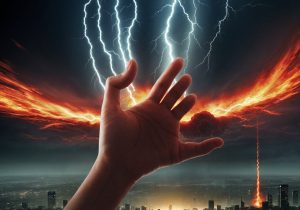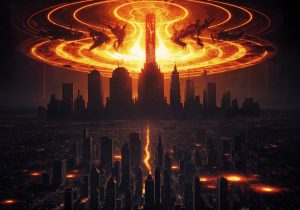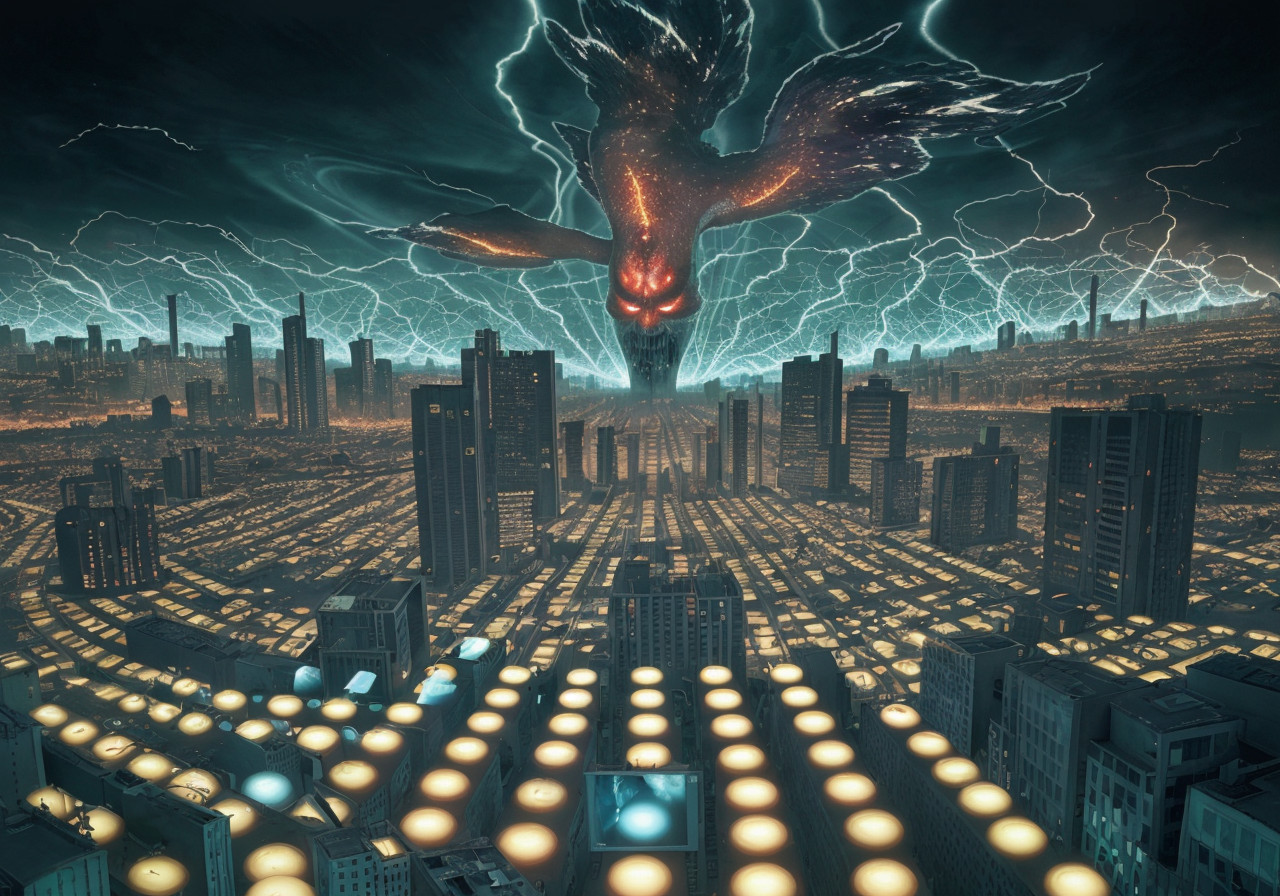Imagine a world where privacy no longer exists. From the moment you wake up, every thought, movement, and transaction is tracked, analyzed, and shared. There’s no escaping it; the Mark ensures that you are always connected, always available, and always seen. You can communicate with anyone at any time, without delay, but there’s a cost: the constant presence of millions of minds, invading your own, leaving you no place to hide. In this world, those without the Mark are considered outcasts—relics of a bygone era where solitude was still possible.
Scenario Description:
In the not-so-distant future, the Mark of the Beast, as foretold in the Book of Revelation, takes the form of an implanted electronic device. This device offers the ultimate in connectivity—instantaneous, continuous communication with everyone and everything. It’s not just a tool; it becomes a way of life, a societal norm that redefines how people interact with one another.
The Mark is more than just a convenience. It’s a gateway to real-time data sharing on a global scale. With it, you can know exactly where anyone is at any moment, monitor financial transactions as they happen, and even access the thoughts and emotions of others. The world becomes a vast, interconnected web, where the line between individual and collective consciousness blurs.

But this hyper-connectivity comes at a price. The constant stream of information is overwhelming, making it impossible to disconnect. There is no rest, no privacy, no escape from the endless flow of data and communication. Relationships become strained as the expectation of constant availability leads to burnout and anxiety. The pressure to conform is immense—those who resist the Mark are ostracized, seen as paranoid or delusional for wanting to preserve their autonomy.
Christian Perspective and the Prophetic Warning:
For many Christians, the concept of the Mark of the Beast is not just a dystopian possibility but a fulfillment of Biblical prophecy. In the Book of Revelation, the Mark is described as a symbol of allegiance to the Antichrist, a sign that separates the faithful from those who have succumbed to the power of evil. The Bible warns that those who take the Mark will face eternal consequences, while those who resist will be blessed for their faithfulness.
In this scenario, belief and spiritual discernment become critical tools for avoiding deception. The allure of the Mark is strong—it offers the promise of convenience, security, and connection—but Christians are called to recognize it for what it is: a tool of control and subjugation. By staying rooted in their faith, believers can resist the pressure to conform and maintain their commitment to God, even when faced with persecution or social isolation.
Global Dystopia:
As more people take the Mark, society begins to change in profound ways. The boundaries between work and personal life dissolve, as the expectation of constant communication leads to 24/7 availability. Employers demand more from their employees, knowing they can reach them at any time. Social interactions become increasingly superficial, as the depth of relationships is sacrificed for the convenience of instant communication.
The economic system is also transformed. The Mark becomes a requirement for participating in the global economy—without it, you cannot buy or sell, access your bank account, or even enter certain buildings. Those who refuse the Mark are forced to live on the margins of society, relying on underground networks and barter systems to survive.

Governments and corporations, meanwhile, use the Mark to monitor and control the population. Dissent is quickly identified and suppressed, as the Mark allows for real-time surveillance of every individual. The power to manipulate public opinion and behavior becomes absolute, with those in control of the Mark dictating the course of society.
The Path to Resistance:
For those who refuse to take the Mark, life becomes a test of endurance and faith. They are cut off from the conveniences of modern life, forced to rely on alternative means of communication and commerce. However, this separation also provides a refuge from the overwhelming demands of the connected world. Communities of like-minded individuals form, offering support and solidarity in the face of increasing pressure.
Belief in a higher power provides strength and guidance to those who resist the Mark. By placing their trust in God rather than technology, they find the courage to stand apart from a society that demands total conformity. Prayer, scripture, and fellowship become vital sources of comfort and resilience, helping believers navigate the challenges of a world that no longer values individual freedom.
Prevention and Mitigation:
While the scenario of the Mark of the Beast is rooted in Christian eschatology, it also serves as a cautionary tale for the broader society. The rapid advancement of technology raises important ethical questions about the balance between connectivity and privacy, convenience and autonomy. As we move towards a more interconnected world, it is essential to consider the potential consequences of surrendering too much control to technology.
Public discourse on the ethical implications of implanted devices and pervasive surveillance must be encouraged. Laws and regulations should be put in place to protect individual rights and ensure that technology serves humanity rather than enslaving it. Most importantly, people must be empowered to make informed choices about their use of technology, recognizing the potential risks as well as the benefits.

